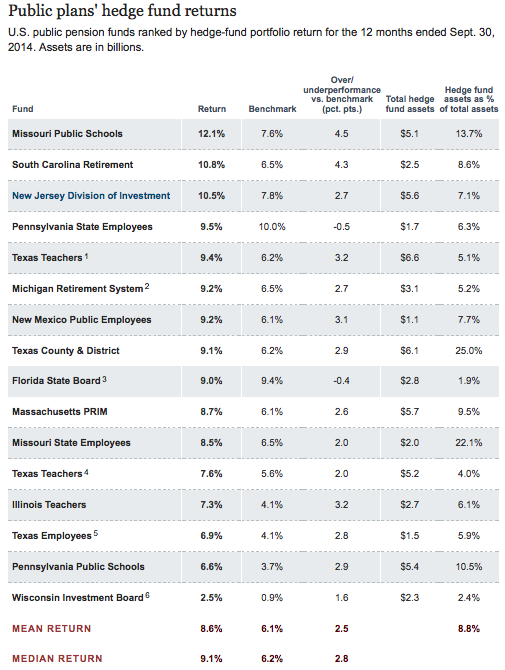
For more than a year, the Massachusetts Bay Transportation Authority (MBTA) Retirement Fund didn’t publicly disclose the problems plaguing a hedge fund that held MBTA money.
Those problems included civil fraud charges filed against the firm, Weston Capital Asset Management, which is now shutting down.
From the Boston Globe:
In its annual report, released Dec. 10, the $1.6 billion pension fund for transit workers said that it removed its money from Weston Capital Asset Management in September 2013. Nine months later, Weston Capital unraveled as federal securities regulators filed civil fraud charges against the firm and its top executives for allegedly draining $17 million from one of its hedge funds to other accounts and to themselves.
[…]
With Weston Capital, the T fund appears to have escaped unharmed. But investment specialists said changes in leadership and ownership at the firm at the time the agency was investing should have raised suspicions.
For instance, the firm’s chief investment officer left just months before the MBTA pension committed money to it. And five months after the T invested, Weston Capital’s founder and chief executive, Albert Hallac, agreed to sell the firm to a financially troubled company — a deal that would ultimately fall apart.
“Turnover is never good in that kind of a situation. You’re [investing] based on their record and their proven results,’’ said Timothy Vaill, the former chief executive of Boston Private Financial Holdings Inc., a banking and investment firm. “If you’re going to be hiring third-party managers, you’ve got to deeply dive into their world.”
A spokesman for the pension fund, Steve Crawford, said in an e-mailed statement that officials did not learn of the Securities and Exchange Commission’s investigation of Weston Capital until this year. But sometime in 2013, he said, the pension fund “initiated discussions with other” investors in the same hedge fund to withdraw their money.
It’s not the first time the MBTA fund has invested money with a troubled hedge fund. From the Boston Globe:
The T’s pension fund said it did not lose money on its 2009 Weston Capital investment. But this is the second time in a year the secretive MBTA retirement fund has belatedly acknowledged problems with its investments.
Last December, the Globe reported that the pension fund had lost $25 million on a hedge fund run by Fletcher Asset Management in New York — an investment recommended by the T fund’s former executive director, Karl White.
In that case, too, the pension fund did not keep close tabs on a risky investment. White had persuaded the trustees in 2007 to commit $25 million to Fletcher, his new employer. White left Fletcher the next year without telling the T. By 2011, the pension fund could not get its money out of Fletcher, which filed for bankruptcy protection in 2012. It was another year before the pension fund disclosed the loss to the public.
The MBTA Retirement Fund manages $1.6 billion in assets.
Photo by Paul Becker via Flickr CC License









